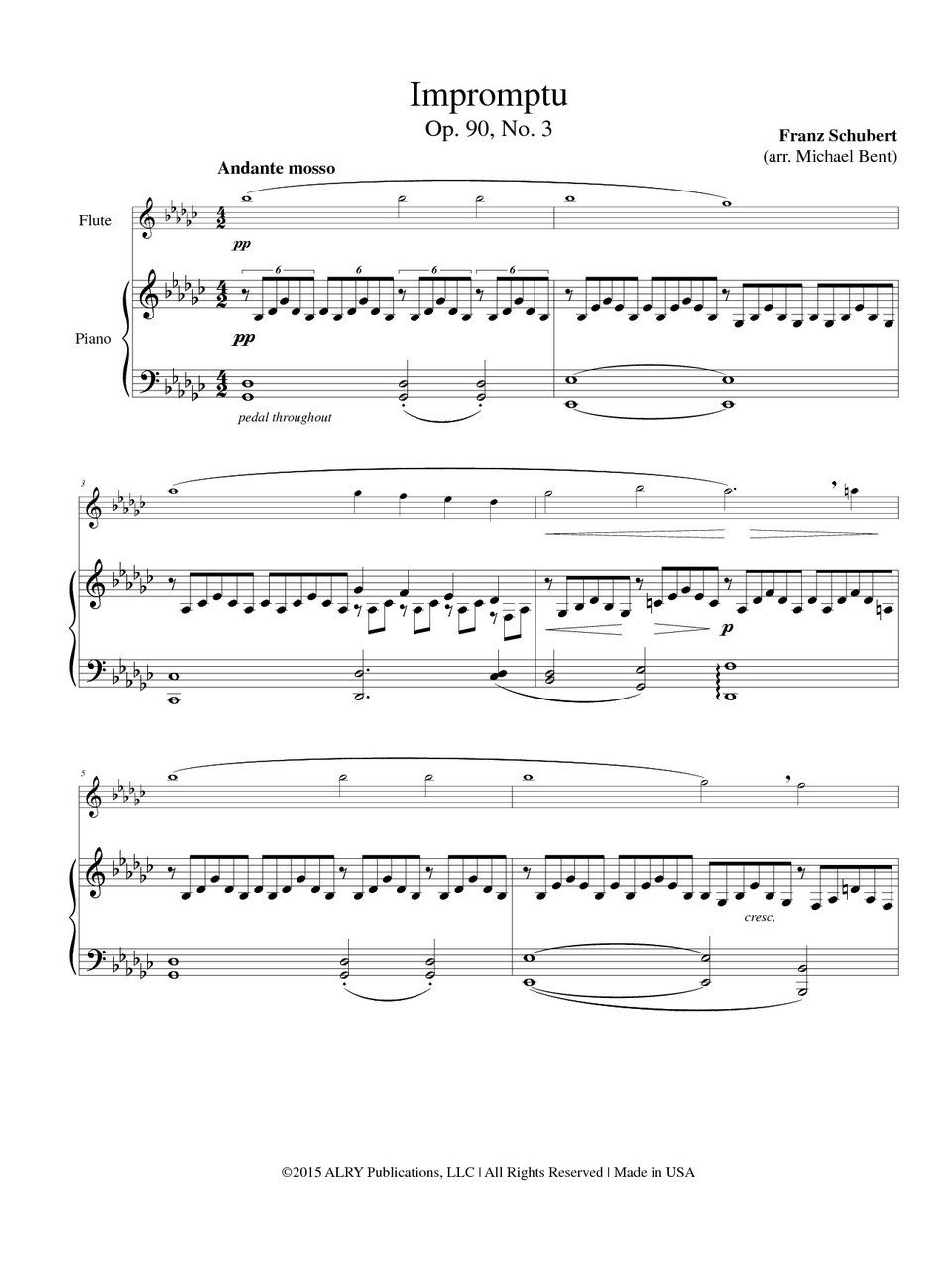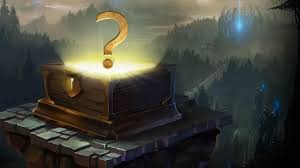Tell me if this has ever happened to you: you’re out and about when you hear a brief passage of gorgeous classical music, which never gets identified, and it goes on to haunt you.
Here was mine: I was in an art-house cinema years back, sitting in the semidarkness with my husband, waiting for the movie to begin. Back in those civilized days, they didn’t bombard you with commercials or junky “shows” before the film; you got to bask in music. This piece, a classical piano recording, was just stunning, dreamy and lyrical. All my thoughts fell away; even my breath stilled, in order to capture every note. “Who is this composer?” I asked my husband in a hushed voice. He shrugged.
“Schubert,” a man two rows behind us called out. I thanked him, murmured it to myself to mentally file it away, and as the piece ended, the lights dimmed, and the movie previews began.
I thought longingly of that piece on and off for the next several months. This was back in the old days, no iTunes, no internet to surf, no Google, Spotify, Amazon. To procure new music you—gasp!— had to go into a record store and hunt for it. It didn’t help that I couldn’t describe it well. (“It’s… very pretty. Haunting. And short.”) I sifted through Schubert’s music to see if I could find it, but we’re talking about a very prolific composer. In his all-too-brief life, Schubert wrote over 1000 pieces of music, 600 of them lieder or “songs”—short, lyrical, vocal compositions that, along with his waltzes (particularly the Austrian Ländler) brought Schubert great fame. (In his native Vienna, where he spent his entire life, these pieces became so popular, they comprised the core of social evenings, called “Schubertiads,” in the salons of the wealthy, where people would gather to sing and dance to Schubert’s music.)
But the mystery music was neither lieder nor waltz.
I searched on. I taste-tested. I bought compilation CDs. I bought a trio of Schubert CDs. No luck.
“Are you sure he said Schubert?” one of my classical music friends asked when I shared my frustrating search for this piece of music. “Was it maybe Schumann? Because that mystical, haunting feeling can be found in a lot of Schumann’s music.”
So I commenced a search through the Schumann repertoire. Bought those compilation CDs. I got to know his symphonies and concertos, some of which, indeed, carried a sense of the otherworldly (which I blogged about HERE). I read a biography on him that was as compelling as a novel. I fell in love with his music. But I never found the composition that haunted me.
The Great Search continued for, believe it or not, a decade. Granted, it didn’t occupy my every thought, but it was always there, in the back of my mind, this mysteriously beautiful piece that either Schumann or Schubert had composed. Every time I went into a music store, I’d grill whomever best knew classical music. I discovered more and more delightful pieces through obscure compilation CDs that I’d buy, which, actually, went a long way in expanding my classical music preferences.
And then one day I heard it again.
I was in the car, driving. And this is probably something other classical music lovers can relate to, as well. You hear it on the radio, and you sit in your car, still as a mouse, having arrived at your destination, but determined NOT to leave the car until the piece ends, at which time the radio announcer will state in that silken broadcaster’s voice that which you just heard, and if ANYTHING gets in the way of your hearing the title or the composer’s name, you will FREAK OUT.
“And that was Franz Schubert (“Aha!” you scream inside) and his Impromptu No. 3 in G-flat major,” the broadcaster purrs, and as he continues talking, you’re frantically grabbing for a pen and paper to scribble that down, and finally, you’ve got it. The name of the song that has haunted you for well over a decade.
It was another few years before I actually bought a recording of the Impromptu No. 3. Yes, I could have bought a CD of the 4 Impromptu collection for $16.99. Call me cheap — I spent most of my pennies back then on budget compilation CDs. For some reason, this astonishingly beautiful piece isn’t as well-known as other short classical compositions. It’s rare to find it on a compilation CD. Strange, since Schubert had such a keen sense of melody. Possibly because he himself began his music studies as a singer, and lieder truly was his claim to considerable fame during his lifetime. (The majority of his other music was published posthumously, where it found even greater popularity.) Thank goodness for the advent of iTunes, where I could buy a single piece of music, simply by typing in the name and clicking “buy.” Schubert’s Impromptu No. 3 is now mine to listen to, whenever I want.
Oh, the emotional images it stirs within me. A whiff of my childhood, dusk on a wintery Sunday, when the younger, chilled me has gone inside and Mom’s got a roast cooking in the oven, filling the air with an intoxicating aroma and a sense of security. An adult version: arriving home after a long day out in the world, but you’re home now, changed out of constraining clothes into something loose and roomy, and someone has just handed you a glass of red wine and told you not to worry, dinner will happen when it happens. In the music, I also catch a prescient glimpse of old age: the sweet ache of walking through a quiet house and seeing all the family photos, each with their own story, each story over, now, consigned to memory. Life lived, life passing.
Your turn to give Schubert’s Impromptu No. 3 a listen. Here are two different interpretations. First one is Vladimir Horowitz and the second one is Inon Barnatan.
And
Which do you prefer? Horowitz’s fingers are so flat against the keys, it’s crazy to watch. But shut your eyes and feel the way he channels a story. The guy is a master, a once-in-a-generation kind of talent. It’s slower than Barnatan’s; I can’t decide if that leaches some of the intensity from it for me. Pianist Inon Barnatan creates such a marvelous mood with his articulation, the way he crescendoes and decrescendos — really, it renders me a little breathless, with awe, with pleasure. It’s just so many delicious aural sensations, packed into six minutes.
Schubert composed the Impromptu No. 3, part of a set of 4 Impromptus, in the two-year period before he died in 1828. He’d found tremendous success in the popularity of his short works, but surely he felt the sorrow of putting so much of his energy into longer works — operas that he could never find a publisher, patron or venue to champion, which had been his lifelong wish. His health was lousy (he contracted what was likely syphilis in his early twenties and spent a good deal of time in hospitals) and he struggled with depression. Readers who already are familiar with Schubert’s work might know that he wrote “Winterreise” during this time. I have to say, when I read the description, a “heartrending diary of the Winter Journey of a rejected lover, whose unquenchable pain leads him to quiet madness and a longing for death” — well, I took a pass. It’s a song cycle of 24 pieces, so if you’re a reader who likes [dark] lieder, HERE is a link. More cheerful and more recognizable is Schubert’s Quintet in A major, popularly known as the “Trout” quintet. I’m a longtime fan of the Rosamunde Overture. I am currently listening to his lovely Piano Quintet in C major, which I prefer over the Quintet in A, actually. You will recognize the middle “Adagio” movement here — it’s been used in several movies and commercials. There’s his Quartet No. 14 in D minor, “Death and the Maiden,” that’s a must-listen, its first two movements in particular. His symphonies. His “Ave Maria.” (Maria Callas’ rendition HERE is simply stunning.) And more, and more.
Have you been haunted by a piece of classical music in a similar fashion? Do share! They are such fun stories to hear, and what fascinates me is how different each classical music lover’s tastes are. Beethoven, Liszt, Bach, Mozart, Chopin, Wagner, Dvorák, Britten, Schumann, Brahms, Barber, Debussy, Hindemith—the list goes on and on, of composers who’ve written something either stunning or stark (or both) that speaks to the soul in a way nothing else can.



I was haunted by a Stamitz viola concerto for 27 years. I first heard it in Berlin when I played the violin I orchestral part, accompanying the soloist, who was a teenage student like myself. I learned to play the viola as an adult and I knew that many violists play a viola concerto in D by Karl Stamitz. It’s a standard of the viola repertoire. So when I was good enough to play it, I listened to the Karl Stamitz concerto eagerly . . . and it wasn’t the right thing!
It turned out the one I remembered was by the younger, less famous, Stamitz brother Anton, and it is not often played. I was able to order the music from Shar, and I learned and recorded a couple of movements, which are still the only recordings of that concerto on YouTube.
Karen, what a fantastic story! Post that Youtube link here if you want us to give your recording a listen!
What a sweet “remembrance of things past” you have written, creating out of a minor personal experience a mini-work of literary art reflecting both a perceptive sensitivity of memory and a mature understanding of classical music.
Thank you for that rafraischissment.
And thank YOU, Pukka, for your beautiful (and beautifully phrased) compliment!
Hi, I also really like the Schubert impromptus. I noticed one thing:
On the top of your page you are showing the first three bars of Schubert’s impromptu No 4, Opus 90 in A-flat major instead of No 3 in G flat major!
Eek! Thank you so much, capybara, for spotting that!!! Need to go change that now!
For many, many years I was “haunted” by a wonderful, classical piece of music that literally would cause me to swoon whenever I heard it. For years I’d wait breathlessly for the announcer to give this piece of divinity a name and artist acknowledgement…alas it would allude me over and over until…one day, finally…A gracious announcer must have had pity on me (though unbeknownst to them) this wonderfully, sublime classic was identified….Barber’s Adagio for Strings. I think I may have cried I was so overwhelmed with gratitude. I felt I could finally “die in peace” with this knowledge but of course I would etch this revelation in my brain forever.
And now, I will forever know this piece and it still causes me to swoon and catch my breath when I hear it. I feel it is my “lover’s delight”. Something that is best shared in those intimate moments with a partner. Sigh…….
Ooh, that’s one a LOT of people are going to name as haunting, Robyn! It’s in a lot of movies (and even some parodies). Did you know it was originally written as a string quartet? It’s just stunning, even better than the orchestral version. Here’s a link if you and others want to check it out. https://youtu.be/lKrxPTePXEQ
Thanks for sharing your “mystery revealed” story! I love reading these!
For me it was “Troubled Night” by pianist Paul Sullivan. Heard part of it on a local public radio station, then several years later heard it playing in a gift shop in St. Augustine, FL and bought the CD.
Maybe not exactly classical, but carries a hint of Chopin.
https://www.youtube.com/watch?v=JrCDf0Xj-tM
Oh, thank goodness you provided a link to “Troubled Night,” Greg! Ooh, off I go to give it a listen.
Thank you so much for this wonderful Schubert blog. It reignited my passion for Schubert and sent me to my CD “library.” Among my seven Schubert CDs I found the Impromptu No. 3 in G Flat on my Mitsuko Uchida album of Schubert impromptus. Wonderful.
Your blog also reminded me of a mystery experience similar to yours. Years ago I set my clock radio to the San Francisco classical station. One morning I was aroused from sleep by a touching, luscious melody featuring a trumpet. It was new to me and I was anxious to know who composed it. When the announcer came on the only word I caught was “Mahler.” At the time, I was not familiar with Mahler’s music but figured there must be a way to find that piece. I guessed it may have been a movement in one of his symphonies. But he wrote nine, so where was I to start? (I didn’t think to call the radio station.) I hied myself to Tower records and purchased Symphony No. 1 for starters. It has four movements, but none of them were what I was looking for. But the CD I purchased by the Royal Scottish Orchestra added a fifth selection to the CD titled “Blumine.”Aha! That was it!
Grace, thank YOU for this wonderful addition to the blog and its discussion. I love your story. I have a few Mahler CDs with extra bits on the end (Symphony No. 1 is short; there’s room on the CD). I’m going to see if I’ve got a recording of “Blumine” anywhere. I guess YouTube is an easy solution, too.
I’m having so much fun seeking out these haunting/memorable short pieces all my readers are mentioning. What fun!
What about the rest of you? Anyone? Anyone? Buehler? Buehler? ((Gotta be a kid from the 70s/80s to appreciate that one.))
I was about13, received a radiocassette (mono!) for christmas. One day on (I think) Medium wave I was spinning throught he dial & caught the tail of a joyous, stunning cello tune. Hit ‘record’ and got the last few bars ad thunderous applaus of “Bach’s chwheehwhs chehe shsh chd . And that was that. I asked the music teacher at school a few years later about, oh maybe a Bach solo Cello concerto and he sniffily told me Back didn’t do solo cello concertos (or some such put down, I was so embarassed I didn’t really pay attention to his comment). FInally years later I was able to pin it down to the final gigue of Bach’s cello SUITE No. 4 in E♭ major, BWV 1010. No thanks to you – sniffy, supercillious Mr Music Teacher.
It’s a cracking piece, shame it is occasionally tinged with half remembered teen embarassment.
And I have LOTS of versions!! Fave – Maurice Gendron at the mo.
Such a great story, SmileyG! Loved this: ““Bach’s chwheehwhs chehe shsh chd”. Ha ha, been there!
And then of course enjoying the music from the immensly cheesy and immensly epic ’80s film “Excalibur”.. years later finding out it’s only Wagner’s Seigfried’s funeral music!! (sorry – two for the price of one tonight!)
I got chills reading through your recount of searching for a piece of music for years! I can only imagine how overwhelming it must have been to finally identify it. Years ago, I walked into a Silver Platters store with the vague intent of finding a recording of a tune I had heard on the radio. I described, as best I could, to the clerk what I was searching for. Either I was exceptionally and accurately descriptive (not likely) or he was the consummate music expert that he was, but I walked out with my very own copy of Gato Barbieri’s Europa and felt like I had won the lottery. As a pianist perfecting my own version of Schubert’s impromptu no. 3, I was searching for why Horowitz changes the 5th measure and ran across your blog. I listen to every performance of this piece I can find, on one hand trying to emulate the great pianists, on the other, giving myself permission to interpret and express my own style. While I think there are passages that Barnatan rushes too much, I love the intensity and anger he inserts and believe that Schubert was intending his music to be played that way. Thank you for your blog; I loved reading about your connection to a piece of music that has affected me in so many similar ways.
Oh, this was so lovely to read, Marie! Thank you for sharing your thoughts and your own experiences. Loved it!
Loved your story, and can empathise on many levels. It’s happened to me, you and doubtless many others. I’m a huge fan of Inon Barnatan – his collaboration with James Ehnes on Schubert’s Fantasie D934 is imho, the most compelling of all the many recordings featured on YT.
But as is so often the case, I believe the fact that your first remembrance of a favourite interpretation (in this case the Impromptu no. 3) was Barnatan’s, has skewed your judgement – it’s happened to me countless times. I truly believe that the Horowitz recording – not withstanding the lousy peripherals, is in truth, transcendental, and most deserving of it’s legendary status (unfortunately not always the case).
All right, time for me to march myself off to listen closer to the Horowitz recording many times in a row. (Cool!) Thanks for the suggestion, Julian, and thanks for posting!